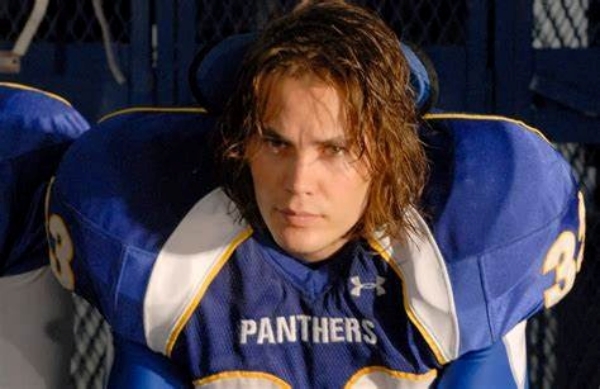When Tennessee Republicans expelled state Reps. Justin Jones and Justin Pearson last week, they made these young Black leaders national figures. The two Justins were swiftly reinstated and the Republicans have little to show for their racist pettiness but the white sheets over their faces.
You’d think Republicans would stop digging, but it seems as if there’s a hole party and every ass is showing up. A Twitter account called “End Wokeness” declared Rep. Pearson a “total fraud.” Why? Because Pearson had a close-cropped haircut in 2016 but in 2023, his hair is big and beautiful.


OK, so everyone grew their hair out during the pandemic. Former “Daily Show” host Trevor Noah’s hair changed similarly between 2016 and 2023. However, our hair is a major part of Black cultural self-awareness. Growing out our hair or “going natural” (especially if you’re a woman) still carries significant professional risk. Studies have shown that employers actively discriminate against natural Black hair and hairstyles. Black people have even been ordered to cut their dreadlocks or trim their afros if they want to keep their jobs. Going natural has long carried a cost, but it’s one that we’ve often considered important enough to pay.
“End Wokeness” reveals their bias with the scurrilous accusation that Pearson is somehow a “fraud” because he once had short hair. The racist implication is that short Black hair is inherently more “professional” and “clean cut,” and that Pearson afro-ed himself up for, presumably, fame and fortune. (That last part is weird, but bigots are nonetheless convinced that life is a cabaret for racial and sexual minorities.)
Of course if I showed you a photo of a short-haired Brad Pitt from his Fight Club/Ocean’s Eleven period and a photo of luscious-locked Pitt from just a couple years later, you wouldn’t consider him any more or less white based on his hair style. However, white people have a bad habit of declaring themselves the arbiters of Blackness. This goes all the way back to the one-drop rule.
Code-switching is also a common survival tactic for Black people who must conform to a white-dominated professional and political world. It’s galling, but not surprising, that white people who’ve spent little time in predominately Black spaces would presume that Pearson is more authentic in his pre-afro footage than he is now. Of course, actual Black people understand that “both” Pearsons are real. We’ve always been bilingual in our own country. And just because young Pearson looked “preppy” doesn’t mean he was a Tim Scott clone.
The Daily Wire’s Matt Walsh suggested that Pearson is just “performing” the part of a “1960s style civil rights leader” and compared it to Blackface. Tucker Carlson said Pearson speaks “like a sharecropper” compared to Malcolm X, who spoke dignified good white people English. No one who watches Carlson for pleasure cares much about Black history, but Malcolm X had a very different cadence when speaking with Black folks or addressing white people.
Exhibit A:
Exhibit B:
Walsh and Carlson are loathsome racists, though, and I don’t want to waste more time talking about them. It’s only worth mentioning because they’re probably not the only white people out there who think this.
Donald Trump was elected in 2016, an event that both white conservatives and moderates struggle to accept might’ve permanently radicalized a generation of Black people (and women). A friend of mine recalled how her white coworker expressed alarm at how “radical” she’d seemingly become after Trump squatted in the White House. However, when Black people embrace our racial truths (a “radical” act in this country), we aren’t putting on a costume or playing a role. We are daring to reveal our inner selves to a white-run society that is not inclined to care for it.
Richard Pryor started out his career as a reasonably entertaining Bill Cosby clone. When he gushes over meeting Jerry Lewis, he’s not lying. The kid who grew up loving Martin and Lewis was a legitimate part of himself.
However, Pryor couldn’t keep denying the rest of his identity, and that was the price demanded for any reliable mainstream success. He had to remain “politely” Black, so polite in fact that no one would notice unless they were making a joke at his expense. If you behaved, you were a “Negro” and not the “n-word,” but it was a rigged game and a false choice.
Pryor was safely building a career with guest appearances on Ed Sullivan, Merv Griffin, and “The Partridge Family” when he couldn’t take it anymore. He dropped out, spending some time in Berkeley, reading The Autobiography of Malcolm X and listening to Marvin Gaye’s revolutionary What’s Going On. He emerged in 1971 with new, distinctly un-Cosby material that mined his explosive, often traumatic past. He’d grown scruffy facial hair and his afro meant business.
“I was a negro for 23 years,” he said, serving notice in a 1971 performance at The Improv. “I gave that shit up — no room for advancement.”
He was done pleasing people like Matt Walsh or even the white moderates who’d once booked him on respectable TV.
If Pearson sounds different to white ears now than he did in 2016, that doesn’t make him a “fraud.” When Ivy League-educated Daveed Diggs played Hamilton‘s Thomas Jefferson as a bad-ass brother in charge, he based his Tony-winning performance on his grandfather — someone who Diggs’s white classmates at Brown University likely would’ve never met. Pearson attended predominately white Bowdoin College in Maine. He adapted to that world, but he’s also a preacher, just like his father. Anyone who grew up in the Black church can tell you that Pearson isn’t faking the funk. He’s simply embraced his full self.
Follow Stephen Robinson on Twitter if it still exists.
Catch SER on his new podcast, The Play Typer Guy.
Did you know SER has his own YouTube Channel? Well, now you do, so go subscribe right now!
Click the widget to keep your Wonkette ad-free and feisty.























































![Social Media Spring Cleaning [Infographic] Social Media Spring Cleaning [Infographic]](https://imgproxy.divecdn.com/9e7sW3TubFHM00yvXe5zvvbhAVriJiGqS8xmVFLPC6s/g:ce/rs:fit:770:435/Z3M6Ly9kaXZlc2l0ZS1zdG9yYWdlL2RpdmVpbWFnZS9zb2NpYWxfc3ByaW5nX2NsZWFuaW5nMi5wbmc=.webp)
![5 Ways to Improve Your LinkedIn Marketing Efforts in 2025 [Infographic] 5 Ways to Improve Your LinkedIn Marketing Efforts in 2025 [Infographic]](https://imgproxy.divecdn.com/Hv-m77iIkXSAtB3IEwA3XAuouMwkZApIeDGDnLy5Yhs/g:ce/rs:fit:770:435/Z3M6Ly9kaXZlc2l0ZS1zdG9yYWdlL2RpdmVpbWFnZS9saW5rZWRpbl9zdHJhdGVneV9pbmZvMi5wbmc=.webp)













